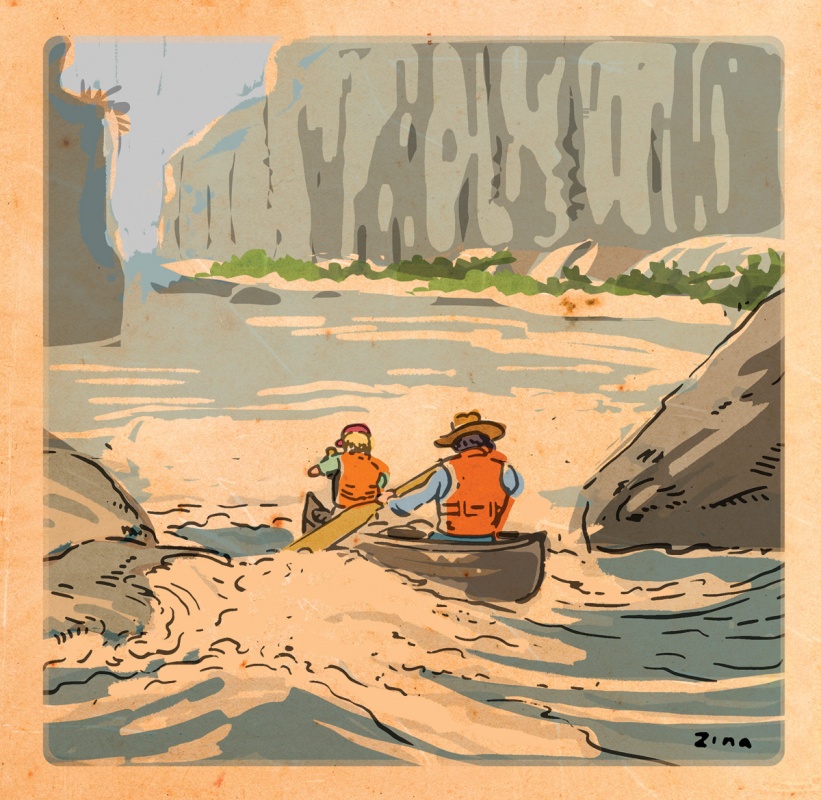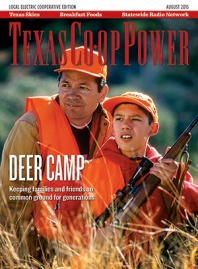Years ago, when I stood straighter and stepped more lightly, I was bent on staving off the responsibilities of adulthood. I did it by rambling cross-country, camping and hiking, sleeping on the ground and sometimes wandering for days and even weeks on end. Finally, a family and monthly bills caught up with me, but I still managed to sneak away regularly.
Inexorably, the years slowly encroached. Now the ground feels harder, and a week away from my favorite pillow or chair is less appealing. I still have some “go” left in me, but not the same stride. It’s frustrating, and I blame my dad.
In the late 1970s, I grew up surrounded by inklings of the future. Technology began to displace outdoor activities. Pay-per-view TV became popular, and Atari was all the rage. Microwave ovens appeared, and cassette tape players allowed us to record music off the radio. We still had bikes to ride and had to actually stand up to physically change the channels on the TV or the cartridge on the video game console, but the seeds of what was to come had already sprouted. We would slowly and incrementally become less active and spend less time outside after that. It seemed inevitable.
I don’t think it bothered my father much because he had worked hard to expose us to outdoor experiences that left lasting impressions. But it must have registered on some level because it led to the greatest adventure of my young life.
My dad had taken me on canoe trips before, the first of which was down the Guadalupe River when I was 7 or 8. But in 1980, just before I turned 13, he took me on a 10-day river trek through the lower canyons of the Rio Grande, easily one of the most remote places in Texas.
No television, video games, microwaves, air conditioning, electricity, radio, telephone or tent—much less soft drinks or showers. We put in at the Boquillas Canyon Ranger Station of Big Bend National Park and plied for Langtry, roughly 160 miles east. We bathed in the river and drank from canteens. We cooked food over open fires and studied desert sky constellations for evening entertainment. If a rain interrupted our open-air slumbers, we rolled off our cots and slid underneath them and went back to sleep. If it got too hot on the river during the day, we took turns sliding into the water and drifting along with the canoe or banked our canoes and lounged under the shade of the cots.
My hands, previously most comfortable with a football, baseball glove or, more recently, an Atari controller, now brandished a wooden paddle, and I learned to navigate like a seasoned river rat.
In the quiet, crevassed solitude of the lower canyons, we could hear a serious rapid or waterfall at least a quarter of a mile away. We banked our canoe and hiked down to judge whether it was passable or if we needed to portage around it. I can’t say our judgment was always correct or that we didn’t luck through some tricky turns or get tumped over by a harrowing rock combination or two; but I can say I’ve experienced very little that compares to the exhilaration I felt during and after successfully traversing a rough, whitewater stretch of the Rio Grande a little farther out than the middle of nowhere during that remarkable journey.
Today, I can hardly cross a bridge over a decent flowing river without thinking back to my time on the Rio. Technology and convenience are practically an inescapable part of our lives now, and that’s fine. But it doesn’t mean we shouldn’t know our way around an oar or campfire or cot. It’s easy to forget that the excitement and adventures we witness on a television, computer or cellphone screen are not actually happening to us, and that we’re living them vicariously or virtually via the offspring of Atari and pay-per-view, instead of firsthand. I don’t know whether my father knew or sensed what was coming or simply wanted to instill in me a sense of adventure, but our Rio jaunt put me way ahead of the curve. And I’ve tried to do the same with my children.
Texas has thousands of real-life experiences available at hundreds of state and national parks, rivers, lakes, waves, rocks, caves, canyons, deserts, mountains, forests, swamps and hike-and-bike trails. I’ve exposed my kids to as many as I could.
An adventure is always calling, and it’s never too late, even if you’ve lost a step.
———————–
E.R. Bills is a writer from Aledo.


